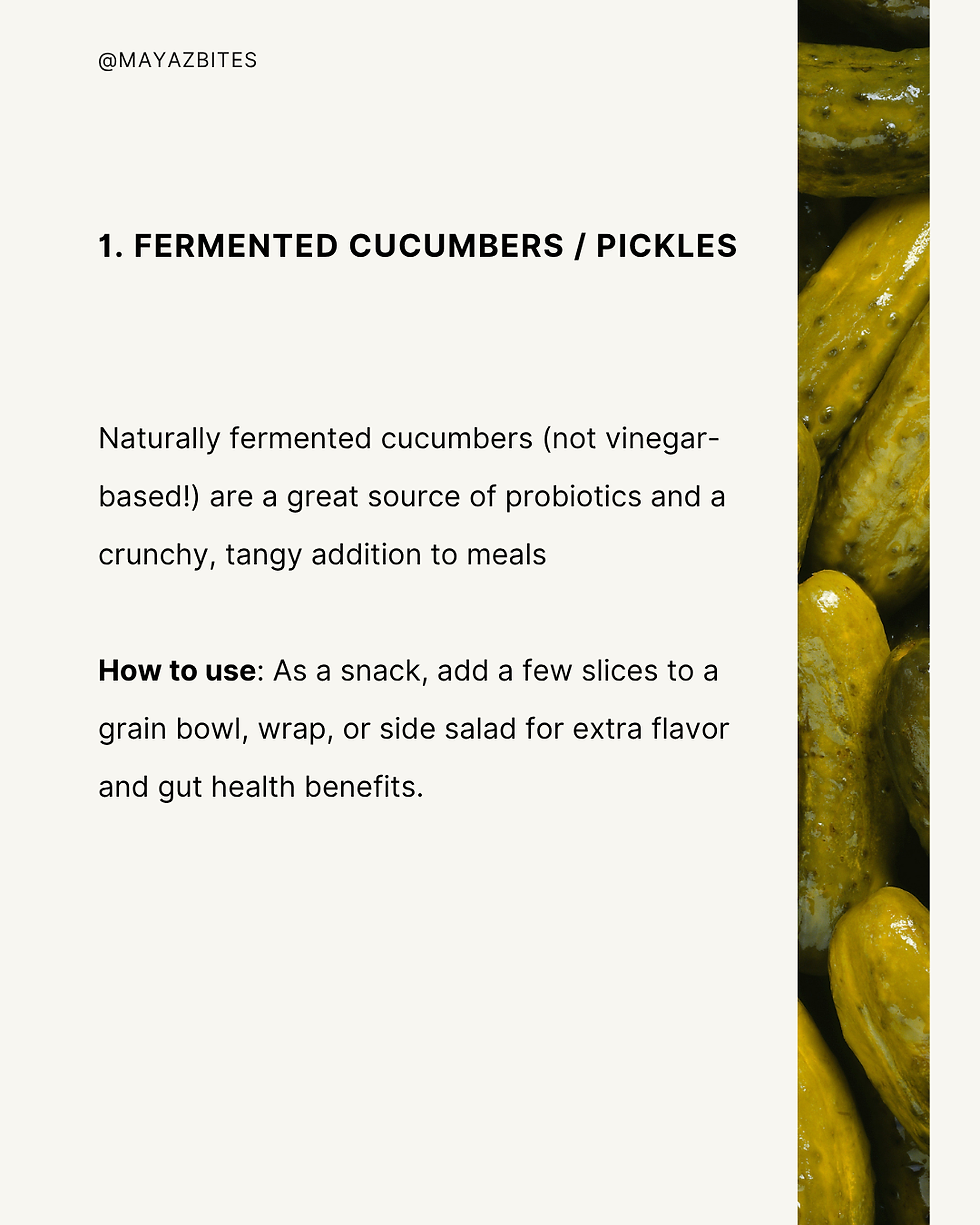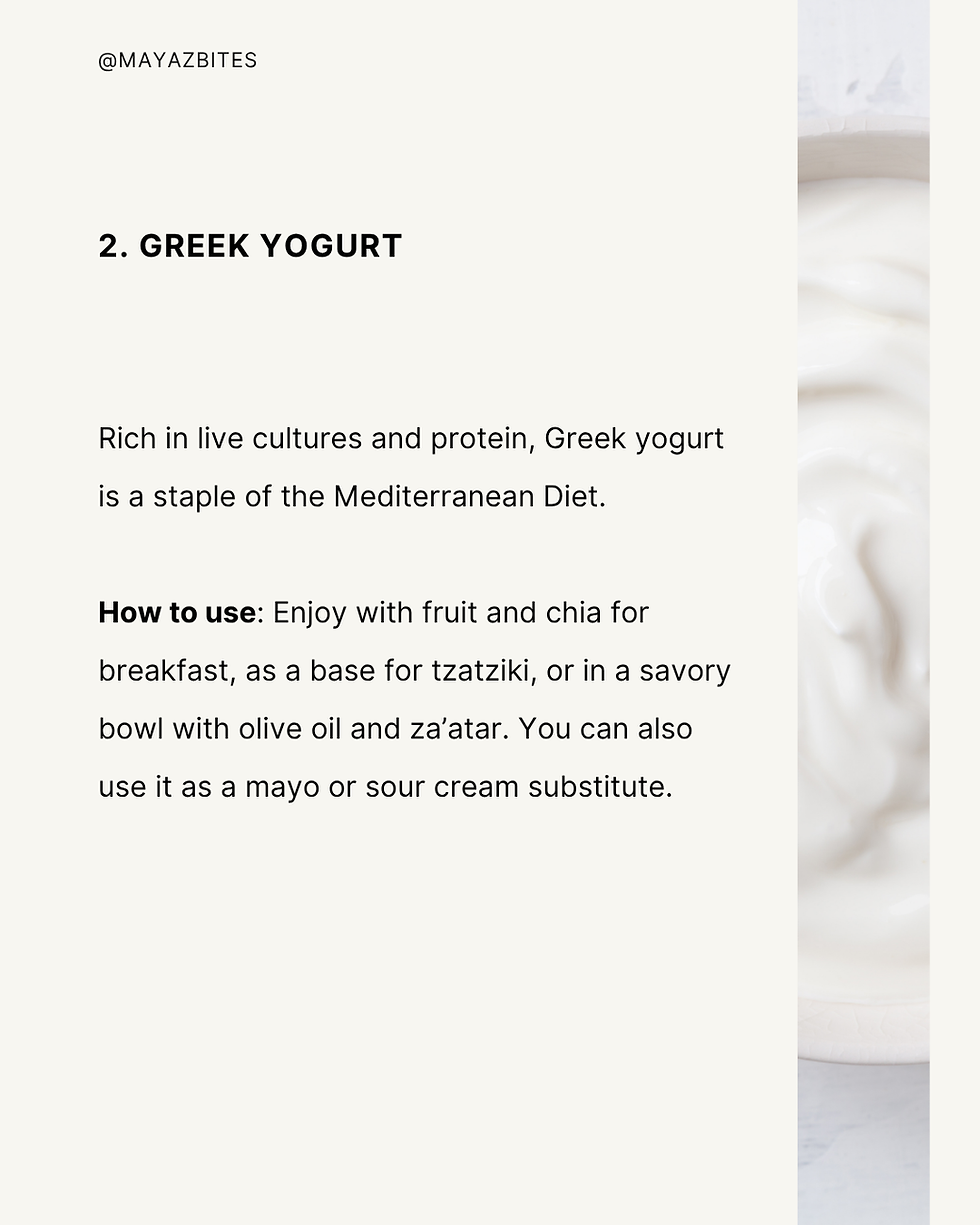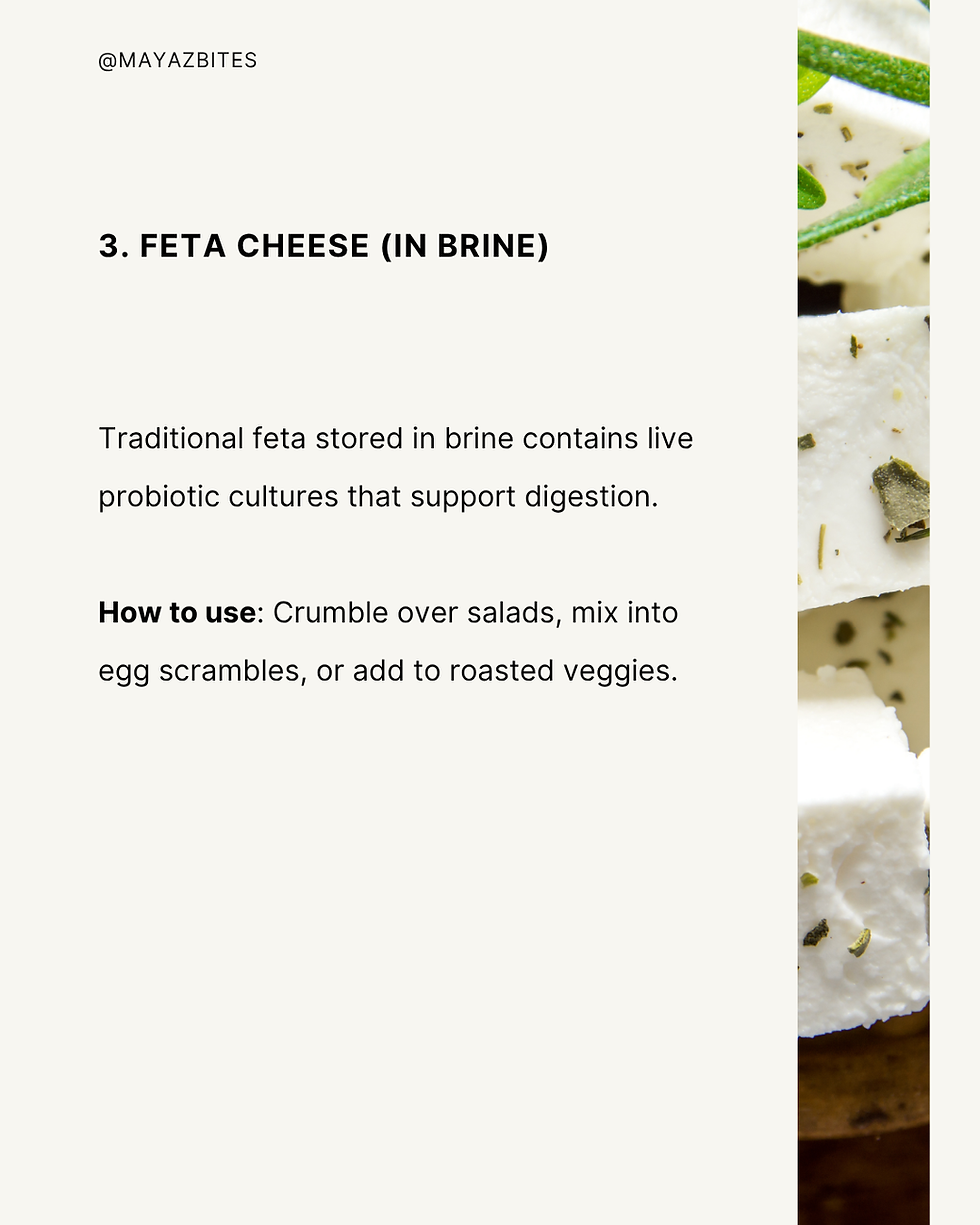Natural Probiotic Foods List: Boost Your Gut Health Naturally
- Maya Oueichek, MBA, RDN
- Aug 10, 2025
- 3 min read
Probiotics are live beneficial bacteria that play a vital role in maintaining a healthy gut microbiome. These friendly microbes support digestion, enhance immune function, and may even influence mood and overall wellness.
Eating a variety of natural probiotic foods is one of the best ways to nourish your gut bacteria and promote long-term health. This guide highlights some of the top natural probiotic foods you can easily add to your diet.

What Are Probiotics and Why Are They Important?
Probiotics are live microorganisms that, when consumed in adequate amounts, provide health benefits by:
Balancing the gut microbiome
Improving digestion and nutrient absorption
Supporting immune health
Reducing inflammation
Potentially influencing brain health through the gut-brain axis
How to Choose Quality Probiotic Foods
Not all probiotic foods are created equal. When selecting probiotic-rich products, consider these tips:
Look for live and active cultures on the label to ensure the presence of beneficial bacteria.
Avoid added sugars and preservatives which can counteract probiotic benefits.
Check ingredient lists for natural fermentation rather than vinegar-based pickling, which doesn’t contain live probiotics.
Natural Probiotic Foods List: Boost Your Gut Health Naturally

1. Fermented Cucumbers / Pickles

2. Greek Yogurt

3. Feta Cheese (in brine)

4. Kombucha (unsweetened)

5. Kefir

6. Sauerkraut

7. Kimchi

8. Tempeh

9. How to Build a Balanced Mediterranean Diet Plate

Mediterranean Diet Meal Plans:
Mediterranean Diet High Fiber Foods List:
The Mediterranean Diet and Natural Probiotics: A Natural Relationship
The Mediterranean Diet naturally incorporates many probiotic-rich foods, making it an excellent approach for nurturing gut health. Traditional staples such as plain yogurt, fermented cheeses like feta, and naturally cured olives provide beneficial live cultures that support a balanced microbiome.
Beyond probiotics, this eating pattern emphasizes prebiotic-rich foods—like garlic, onions, artichokes, and whole grains—that nourish those beneficial bacteria. This powerful combination of probiotics and prebiotics creates a thriving environment for gut flora, which is key to digestion, immune function, and even mood regulation.
Research consistently shows that adherence to the Mediterranean Diet is linked to greater microbial diversity and improved markers of gut health compared to other diets. Its holistic focus on fresh, whole foods and fermented products makes it uniquely effective for long-term wellness.
By integrating natural probiotic foods within the Mediterranean framework, you can support your digestive system naturally and enjoy flavorful, nutrient-rich meals every day.
The Role of Prebiotics in Supporting Probiotics
Prebiotics are non-digestible fibers that feed and nourish probiotic bacteria in your gut. Including prebiotic-rich foods alongside probiotics helps maximize their health benefits.
Common prebiotic foods include:
Garlic
Onions
Leeks
Asparagus
Artichokes
Bananas
Whole grains like oats and barley
Combining probiotics and prebiotics encourages a healthy, balanced gut microbiome and promotes better digestion and immunity.
Explore More: Mediterranean Diet Food Lists (Volumes 1–5)
Looking to build your Mediterranean pantry or refresh your grocery list? Browse these dietitian-approved food lists to discover what to stock up on.
Each list contains a selection of 10 items, including nutrition benefits highlights and simple ways to use.
How to Incorporate Probiotic Foods into Different Meals
Probiotic foods can be seamlessly added to various meals throughout the day:
Breakfast: Top your oatmeal or smoothie bowl with yogurt or kefir.
Lunch: Add fermented pickles or sauerkraut to sandwiches or salads.
Dinner: Stir miso into soups or use tempeh as a plant-based protein in stir-fries.
Snacks: Enjoy small servings of fermented cheeses or a glass of kombucha.
Want More Mediterranean Diet Resources and Recipes?
Looking for more support on your healthy eating journey? Bookmark this post and explore others for comprehensive Mediterranean Diet resources and expert advice. Don't forget to check my social media and follow @Mayazbites































Comments